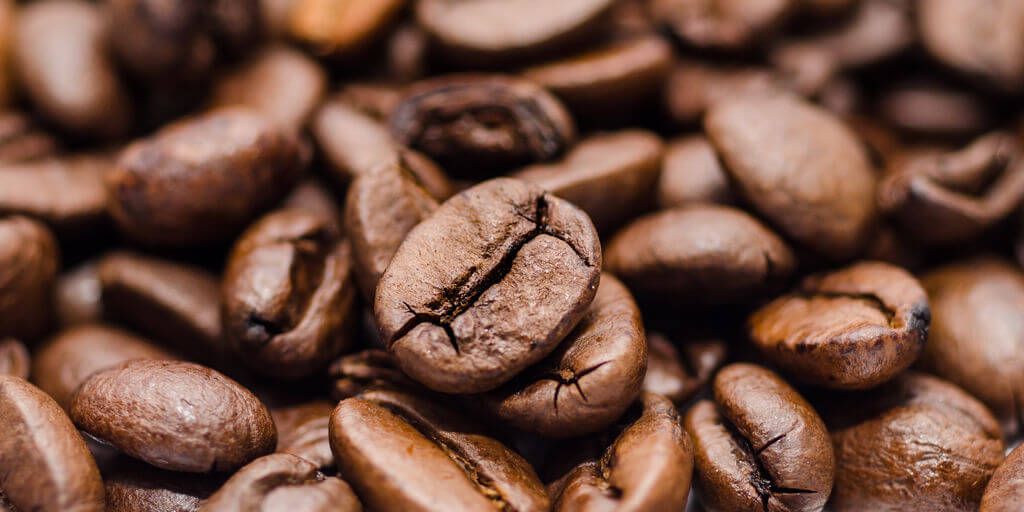Cocoa beans are the dried and fully fermented seeds of the cocoa tree, Theobroma cacao. They are the primary ingredient used in the production of chocolate and cocoa products. Cocoa beans are harvested from cocoa pods, which grow directly from the trunk and branches of the cocoa tree. After harvesting, the cocoa beans undergo fermentation, drying, and roasting processes to develop their characteristic flavor and aroma. Once processed, cocoa beans can be used to make various chocolate products, including chocolate bars, cocoa powder, cocoa butter, and chocolate confections.
Active Ingredients in Cocoa Beans
Cocoa beans are known to have more than 300 healthful compounds. Some of these include; epicatechin phenylethylamine, theobromine, and many polyphenols, like flavonoids. Cocoa beans also contain many vitamins and minerals as well as healthy doses of potassium and copper, which support cardiovascular health, and iron which transports oxygen through the body. Calcium and magnesium are also found in cocoa beans, which are necessary in order for all the major organs to function properly.
Where Cocoa Beans Grow
Cacao beans, better known as cocoa beans, first appeared in the Amazon basin, and grow only in moist, warm and shady climates. Cocoa beans are primarily grown in Africa, Asia and, Central and South America. Cacao beans are produced by the plant Theobroma cacao, which translated, means “food of the Gods”. That is a good name for them, given the numerous health benefits provided by them.
Health Benefits of Cocoa Beans
Listed below are the many health benefits of cocoa beans:
Antidepressant Effect of Cocoa Beans
Cocoa beans are considered to be nature’s antidepressant. These beans contain dopamine, phenylethylamine (PEA) and serotonin, all of which are used to promote positive mental health and moods. In addition to this, these beans also contain monoamine oxidase inhibitors and amino acid tryptophan.
Monoamine oxidase (MOA) inhibitors work to keep dopamine and serotonin in the bloodstream longer, which could ease depression and promote feelings of well being. Tryptophan is important in the body’s production of serotonin.
Antioxidants in Cocoa Beans
Research reveals that cocoa beans are perhaps the best source of antioxidants, containing up to ten percent antioxidant concentration levels. That is three times more antioxidants than green tea and twice the amount in red wine. Blueberries are often said to be a great source of antioxidants, however, while domestic blueberries have 32 antioxidants, and wild blueberries have 61, cocoa beans have 621!
Antioxidants have several health benefits. They protect against cell damage and reduce the risks of several kinds of cancer. Antioxidants also help regulate cholesterol levels.
Cocoa Beans are good for Cardiovascular Health
Cocoa beans are also good for the cardiovascular system as they contain polyphenols, which has been proven to be quite beneficial for good heart health. Research indicates that polyphenols, as found in cocoa beans, might reduce blood pressure.
Cocoa beans contain magnesium. This is another nutrient that promotes good heart health. Magnesium increases heart strength and improves its condition. This helps to ensure that the heart will continue to effectively pump blood. Magnesium also decreases the risk of blood clots. This in turn, reduces the risks of strokes and heart attacks.
Cocoa Beans are Rich in Epicatechin
Cocoa beans also contain a substance known as: epicatechin . This is a compound so rich in health benefits that a Harvard professor thinks it should be considered a vitamin! It is suspected that the effects of epicatechin are comparable to that of anesthesia and penicillin.
Epicatechin is also suspected to reduce the risks of diabetes, heart disease, cancer and strokes. Due to its bitter flavor, epicatechin is often removed from common cocoa products, therefore to reap the benefits of this compound it is necessary to purchase whole cocoa beans.
Energy Boosting Effect of Cocoa Beans
Cocoa beans reduce anxiety while simultaneously promoting alertness. A cup of cocoa can provide the same energy as a cup of coffee. However, due to the fewer stimulants in cocoa, there is no strong crash afterwards, as there is with a cup of coffee.
Cocoa Beans can Help with Weight Loss
A good number of the health benefits that are known to be contributed to cocoa beans indicate a possibility that they could be a weight loss aid. Research shows that the polyphenols in cocoa beans might improve sensitivity to insulin.
Scientists are currently studying the connection between obesity and a condition known as Insulin Resistance Syndrome. Increased insulin sensitivity, from cocoa beans or dark chocolate for example, may support weight loss efforts.
Further more, the natural antidepressants found in cocoa beans might make it easier for individuals to stay on track with their diets.
Incorporating Cocoa Beans Into Your Diet
Cocoa beans, in their raw form, may be purchased at health stores. It is possible to purchase and consume them in that manner, however many people find it difficult to deal with the harsh, bitter taste.
Luckily there is a more pleasant tasting option, dark chocolate. There are specific characteristics that dark chocolate, selected for health, should contain. For example, healthy dark chocolate needs to have no less than 70% cacao. No milk or any other dairy products should be present in the chocolate as they inhibit the body’s ability to absorb antioxidants. The chocolate should be made from cacao butter and not coconut or palm oil.
Shopping
| Visit the new SHOPPING page for a wide selection of great products! |
Always take care when taking herbs and Read Our Disclaimer.
Cocoa Beans Notes / Side Effects
Below are some possible Side Effects of Cocoa Beans:
Caffeine-Related Effects
Cocoa contains caffeine (though less than coffee), which can cause:
Insomnia or sleep disturbances
Nervousness or restlessness
Increased heart rate
Anxiety (especially in sensitive individuals)
Headaches or migraines
Digestive Issues
Nausea
Stomach discomfort
Gas or bloating
Increased risk of acid reflux (due to theobromine and caffeine)
Allergic Reactions
Though rare, some people can be allergic to cocoa:
Skin rash or hives
Itching
Breathing difficulties
Kidney and Urinary Effects
Cocoa is high in oxalates, which can contribute to:
Kidney stone formation in susceptible individuals
Heavy Metals (in processed cocoa products)
Some cocoa powders and chocolate products have been found to contain:
Cadmium and lead – which can be harmful over time if consumed excessively
Interactions with Medications
Cocoa can interact with certain antidepressants (like MAOIs) due to its tyramine content
Can affect blood pressure if you’re on meds for hypertension (due to its stimulant effects)
Addiction or Craving
Cocoa can stimulate dopamine release, which is good in moderation but might:
Contribute to cravings or dependence in some people
🍫 In Moderation, It’s Often Beneficial
Raw cocoa (or dark chocolate with high cocoa content) contains antioxidants like flavonoids that may help:
Reduce inflammation
Improve heart health
Enhance brain function
✅ Safe Daily Intake of Cocoa
- Raw cocoa nibs or powder:
👉 1 to 2 tablespoons (5–10 grams) per day is generally considered safe and beneficial. - Dark chocolate (70%+ cocoa):
👉 20–30 grams (about 1 oz) daily is a common recommended upper limit for health benefits. - Caffeine from cocoa:
- Cocoa contains ~12 mg of caffeine per tablespoon (depending on the type).
- Keep in mind the total daily safe caffeine limit for most adults is ~400 mg.
⚠️ When It Might Be Too Much
Cocoa intake might be excessive if you’re:
- Regularly consuming:
- Over 3–4 tablespoons of raw cocoa powder daily
- More than 40–50g of dark chocolate per day
- Experiencing symptoms like:
- Jitters, anxiety, or trouble sleeping
- Stomach discomfort or acid reflux
- Headaches or increased heart rate
- At risk for:
- Kidney stones (due to high oxalates)
- Heavy metal exposure from excessive store-bought cocoa/chocolate (especially cadmium/lead in cheaper or unregulated brands)
👶 Special Considerations
- Children, pregnant people, or those with heart/kidney conditions should consume cocoa more conservatively (talk to a healthcare provider for specifics).



Leave a Reply